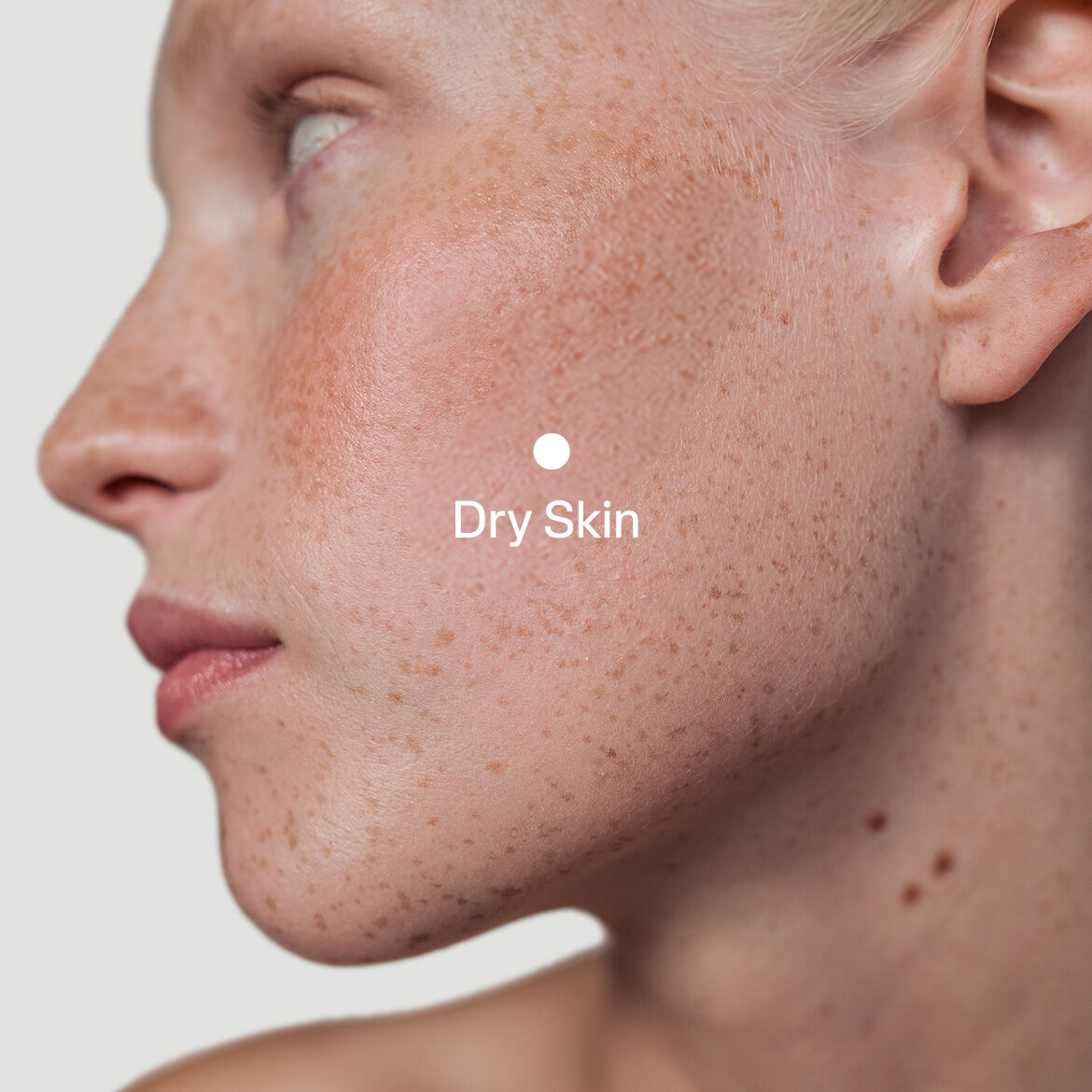
What Causes Dry Skin in Winter and How to Combat It
Winter is synonymous with chilly winds, cozy sweaters, hot chocolate, and, unfortunately, dry skin. As the temperature drops, many people experience tight, itchy, and flaky skin, leaving them searching for effective remedies.
This article explores the causes of dry skin, why it is common during winters, and, most importantly, how to combat it effectively. Understanding these seasonal challenges and using targeted remedies can protect your skin while maintaining its health and radiance.
Let’s begin!

Understanding Dry Skin: What It Is and Why It Happens
What is dry skin? Scientifically known as xerosis, the skin lacks moisture in its outer layer. This leads to roughness, itchiness, and even cracks. What is the reason for dry skin? A combination of internal and external factors, such as low humidity, can strip your skin of its natural oils, which makes it harder to retain moisture.
Sadly, these conditions are exacerbated during the winter, leading to discomfort. What causes dry skin? The next section will discuss this.
Common Causes of Dry Skin in Winter
The drop in temperature and environmental and lifestyle factors are the main causes of dry skin in winter. These factors can be broadly classified into internal and external/environmental factors.
Internal factors include age, genetics, and overall health. Our skin produces less oil as we age, making it naturally drier. Genetic predispositions, such as eczema, can worsen dry skin. Dehydration, poor nutrition, and certain medications also make skin more prone to dryness.
Addressing these internal factors is important before discussing the external causes of dry skin. No amount of skin care products or external hacks can permanently fix the internal problem.
Environmental Factors: How Cold Weather Affects Your Skin
Cold weather is notorious for drying out the skin. Low humidity levels outdoors, combined with indoor heating systems, sap moisture from the skin. This results in dehydration and a compromised skin barrier, leaving the skin more vulnerable to irritation.
Harsh winds aggravate this issue by stripping away the skin’s protective layer oils. The natural oil on your skin retains moisture; without it, the skin gets dry easily. These are some of the main causes of dry skin during winter.
Skincare Habits That Worsen Dryness in Winter
Here are some of the habits that are reasons for dry skin in winter:
- Frequent hot showers: Hot water can strip the skin’s natural oil layer.
- Overwashing your face and hands: Excessive washing or cleansing of your face causes dryness.
- Using harsh soaps and cleansers: Products with high alcohol or strong fragrances can deplete skin moisture.
- Skipping post-shower moisturization: Failing to apply moisturizer immediately after bathing can cause rapid moisture loss.
- Over-exfoliating: Many people use physical exfoliators to shed off flaky skin, which causes more dryness.
- Neglecting sun protection: Even though sun exposure is less intense, avoiding sunscreen can still dry your skin.
Essential Tips to Combat Winter Dryness
Combating causes for dry skin requires a mix of effective strategies to keep your skin hydrated and healthy. Here’s an overview:
- Hydrate with moisturizers: Use rich, creamy formulations that lock in moisture.
- Use gentle cleaners: Avoid harsh products that strip natural oils.
- Employ a humidifier: Add moisture to indoor air to prevent dryness.
- Protect your skin: Use sunscreen and cover up in extreme weather.
- Stay consistent: Follow a daily routine tailored to winter skincare needs.
Tip 1: Using a Gentle Cleanser for Winter
Switch to a soap-free gentle cleanser that won’t strip your skin of essential oils. Avoid cleansers that have sulfates, alcohol, or artificial fragrances. Look for products enriched with hydrating ingredients like aloe vera and glycerine.
It will be a bonus if the cleanser contains vitamins B5 and B3, like Cetaphil’s Daily Facial Cleanser. These vitamins keep the skin soft and nourished.
Tip 2: Hydrating Your Skin with Moisturizers
Moisturizers are your best friend when it comes to nourishing dry skin. Opt for rich, creamy formulas that include glycerine, ceramides, and hyaluronic acid. If you have extremely dry skin, don’t use lightweight gel-based moisturizers, which are ineffective in providing moisture for long hours. Switch to oil-based and thick body butter, and save your gel-based moisturizers for the summer.
Tip 3: Why Humidifiers Are Your Skin's Best Friend
Moisture always travels from high concentration to low concentration through osmosis. This means that if your surroundings have less moisture, your skin will use up the moisture. This is also one of the major causes of dry skin. To bring back moisture in your surroundings, use a humidifier indoors. Place it in your bedroom overnight to restore the optimal balance of humidity indoors.
Recommended Cetaphil Products to Soothe Dry Skin
Cetaphil presents you with a range of dermatologists-recommended products that are perfect for dry and sensitive skin.
- Cleansers
- Gentle skin cleanser
- Bright, healthy radiance reveals creamy cleanser
- Gentle foaming cleanser
- Cetaphil Hydrating foaming cream cleanser with niacinamide, aloe vera, and glycerine
- Moisturizers
- Restoraderm skin restoring moisturizer
- Daily advanced hydrating lotion
- Cetaphil optimal hydration night cream
- Sunscreens - Sun SPF 30+ and 50+ gel sunscreens
Choose one product from each category to create a perfect winter skincare routine.
Creating a Winter Skincare Routine for Dry Skin
An effective skincare routine can help you fight winter skin dryness like a pro. Here’s what you can follow:
- Cleanse gently: use lukewarm water, not hot water, and a gentle and hydrating cleanser.
- Exfoliate mildly: While exfoliation is necessary, you can’t overdo it. Use a chemical exfoliator instead of a physical scrub once a week.
- Hydrate generously: Don’t let a lack of adequate hydration be one of the causes of dry skin for you. For double hydration, use oil as the first layer of hydration, which will quickly moisturize your skin. Top it off with a thick moisturizer or body butter to lock in that moisture.
- Protect your skin: Weather sunscreen even on cloudy and rainy days to prevent dryness.
Want something more personalized? Try out Cetaphil’s AI Skin Analysis Tool, which will inform you more about your skin type and its needs. At the end of this analysis, you will also receive a personalized skincare routine to help your skin stay hydrated and soft even during harsh winters.
The Role of Hydration in Preventing Dry Skin
Dehydration is the second most common cause of dry skin in winter. Hydration should be both internal and external to maintain plump and moisturized skin. Drinking water and applying topical products are essential for skin health. Layering your skin care with hydrating serums can be a game-changer.
FAQs
1. What are the most common causes of dry skin in winter?
Low humidity, cold winds, harsh temperatures, and indoor heating can all cause dry skin in winter. These conditions deplete the natural oils that moisturize skin, resulting in dry and flaky skin.
2. How can I prevent my skin from becoming dry during the winter?
Here’s how to combat the causes of dry skin this winter:
- Moisturize daily after shower
- Layer your body lotion with body oil
- Don’t over-exfoliate
- Switch to a gentle cleanser
- Drink plenty water
- Use indoor humidifier
- Avoid super hot showers
3. Is dry skin in winter a sign of a medical condition?
While dry skin is very common in winter, persistent dryness, even after following all the tips above, can indicate a medical problem. It can indicate skin problems like eczema or psoriasis. If the dryness persists for a long time, consult a dermatologist.
4. Which Cetaphil products are best for combating dry skin in winter?
Cetaphil Gentle Skin Cleanser, Moisturizing Cream, Daily Hydrating,Lotion, and Sun SPF 50+ Gel are great for restoring hydration. Combine these with Cetaphil Optimal Hydration Serum, and your skin will always feel plump and quenched.
5. How often should I moisturize my skin in winter?
Moisturize at least twice daily, ideally after bathing and before going to bed, to keep your skin hydrated and healthy. However, for extra dry skin, moisturize as and when needed, especially on thick skin areas like the elbows and the knees.
6. Does drinking more water help with dry skin in winter?
Don’t avoid drinking water, even if it is the winter season. No amount of topical cream can replenish internal dehydration. If you are good to go on water consumption, opt for topical hydration with moisturizers, which is crucial for fighting the causes of dry skin. Apply a body oil before the body lotion after a shower to experience completely hydrated and soft skin all winter.














